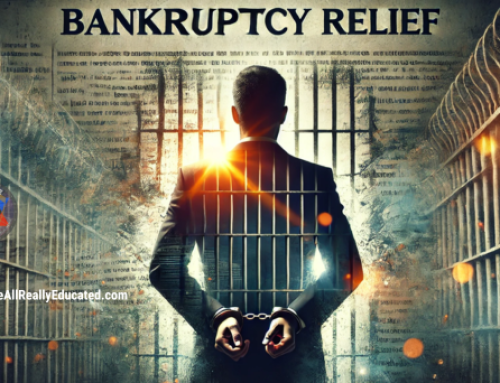A Limited Liability Company (LLC) is a form of corporate entity that provides a level of liability protection to its owners, known as members. The key feature of an LLC is the separation of assets owned by the company from the personal assets of its owners, offering a limitation of liability. This means that the personal assets of the members are generally shielded from the liabilities and debts of the LLC.
An LLC can be viewed as a hybrid structure, combining elements of both a corporation and a sole proprietorship or partnership. Similar to a corporation, it is recognized as a distinct legal entity, affording enhanced asset protection. However, in contrast to a corporation, LLCs are simpler to establish and operate. They fall under the category of “pass-through” tax entities, meaning that the LLC itself does not pay taxes at the corporate level. Instead, the profits and losses pass through to the individual members, who are then responsible for reporting and paying taxes on their personal income tax returns.
In summary, an LLC provides a balance between the liability protection of a corporation and the simplicity of a sole proprietorship or partnership, making it a popular choice for various businesses and ventures.
Using an LLC for Asset Protection:
Limited Liability Companies (LLCs) are widely utilized to safeguard personal assets from risks associated with business activities. This protection is achieved by establishing a legal barrier that separates the company’s liabilities from the owner’s personal assets.
Here are instances where an LLC can be instrumental in protecting personal assets:
- Unforeseen Liabilities:
- In the event of unforeseen liabilities arising from business operations, such as lawsuits, creditor claims, or bankruptcy, an LLC shields the owner’s personal assets.
- Only the assets owned by the LLC are vulnerable to claims, ensuring that personal assets are not directly at risk.
- Legal Separation:
- An LLC creates a distinct legal entity, separating the business from its owners. This legal separation reinforces the idea that the company is an independent entity, distinct from its individual members.
- Liability Isolation:
- Liabilities incurred by the company generally do not extend to the personal assets of the owners. This “liability isolation” is a key feature that shields personal assets from the financial obligations of the business.
- Creditor Protection:
- If the company faces financial difficulties or creditor actions, the personal assets of the owners are typically shielded from these challenges. Creditors typically have recourse only to the assets held within the LLC.
- Bankruptcy Protection:
- In the unfortunate event of the company facing bankruptcy, the protection afforded by an LLC ensures that the owner’s personal assets are not automatically liquidated to settle business debts.
While an LLC is a valuable tool for asset protection, it’s important to note that there are exceptions and limitations to this protection. Understanding these limitations and complying with legal requirements is crucial for maximizing the effectiveness of an LLC in safeguarding personal assets. In subsequent discussions, we will delve into these exceptions and limitations in more detail.
- Using an LLC as a Vehicle for Business Activities:
When you employ an LLC as the entity through which your business activities are conducted, it provides a crucial layer of protection for your personal assets. In the event that legal action is taken against the business or claims are made due to negligence during the course of business operations, the protection offered by the LLC comes into play:
- Business Liability:
- If the business is sued or faces claims, only the assets owned by the LLC are subject to potential claims and legal judgments.
- Personal assets, such as your home, savings, or other individual possessions, are generally shielded from the legal actions targeting the LLC.
- Negligence Claims:
- Claims arising from negligence during business activities are typically confined to the assets held by the LLC.
- Your personal assets, outside of the business context, are not automatically vulnerable to claims related to business-related negligence.
In essence, by using an LLC as the vehicle for your business operations, you establish a clear separation between the assets of the business and your personal wealth. This legal distinction helps mitigate the impact of legal actions taken against the business, providing a safeguard for your personal assets in the face of business-related liabilities.
- Exclusion of Personal Assets from Legal Issues or Claims:
When an LLC is appropriately utilized, your personal assets, including bank accounts and property, are kept separate and shielded from any legal issues or claims directed at the LLC. This protection remains intact even if the assets owned by the LLC are inadequate to cover its legal obligations:
- Asset Exclusion:
- Personal assets, such as your personal bank accounts, real estate, or other non-business-related properties, are not considered part of the legal matters or claims associated with the LLC.
- Even if the assets held by the LLC are insufficient to meet its legal obligations, your personal assets remain safeguarded.
- Timing of Establishment:
- To ensure optimal protection, it is crucial that the LLC is properly structured and maintained.
- The LLC must be established before the occurrence of any lawsuit or legal dispute. Establishing the LLC after legal issues have arisen may limit its effectiveness in shielding personal assets.
In summary, a well-structured and properly maintained LLC ensures the exclusion of personal assets from legal matters pertaining to the LLC. This protection persists even when the assets within the LLC are insufficient to cover its legal obligations. The timing of establishing the LLC is critical, and proactive establishment before any legal issues arise enhances its effectiveness in providing maximum protection for personal assets.
- Using LLCs to Shield Personal Assets from Liability:
LLCs serve as versatile instruments for asset protection by not only safeguarding personal assets from claims against the business but also providing a means to shield assets transferred to the LLC from personal liability. Here’s how this strategy can be employed:
- Offshore LLC for Financial Protection:
- A popular strategy involves establishing an offshore LLC that is not actively engaged in business but serves as a financial vehicle.
- Personal assets can be transferred to this offshore LLC, creating an additional layer of protection in the event of lawsuits or claims against personal assets.
- Protection from Personal Liability:
- The offshore LLC, acting as a vessel for financial purposes, provides a barrier between personal assets and potential personal liability.
- In the event of legal actions or claims against your personal assets, the assets held within the offshore LLC are insulated from such liability.
- Versatility in Asset Protection:
- LLCs demonstrate their versatility by extending protection beyond business-related claims to include shielding assets transferred from personal liability.
- This strategy allows individuals to proactively protect a broader spectrum of personal assets, making LLCs valuable tools for comprehensive asset protection.
In essence, utilizing LLCs as financial vehicles, especially in offshore jurisdictions, allows for a strategic transfer of personal assets to shield them from potential personal liability. This dual function of LLCs, protecting both business and personal assets, underscores their versatility and effectiveness in the realm of asset protection.
- Personal Protection from Lawsuits through LLCs:
LLCs offer a crucial shield against personal liability, particularly for individuals operating as freelancers or independent professionals like doctors, lawyers, architects, etc. Let’s consider an example:
- Freelancer or Independent Professional:
- Imagine a freelancer or independent professional, such as a doctor or lawyer, who decides to establish an LLC as the entity through which they conduct business activities.
- Risk Reduction:
- By conducting business through the LLC, there is a significant reduction in the risk of being personally sued.
- Without the protective corporate layer provided by the LLC, conducting the same business activities in their personal name would expose them to a higher risk of personal liability in the event of malpractice or damages occurring during the course of business.
- Separation of Identities:
- The LLC serves as a distinct legal entity, separating the individual’s personal identity from their business activities.
- This separation ensures that personal assets are shielded from potential lawsuits or claims arising in connection with the professional services rendered.
In essence, the use of an LLC provides a critical layer of protection for individuals in professions where personal liability is a concern. It separates personal and business identities, significantly reducing the risk of being personally sued in the event of professional malpractice or business-related damages. This illustrates the effectiveness of LLCs in safeguarding personal assets and mitigating personal liability risks.
Exceptions to LLC Liability Protection: When Personal Assets are Not Protected
While Limited Liability Companies (LLCs) offer valuable protection, there are exceptions to this safeguard. It is essential to be aware of scenarios where personal assets may not be fully protected:
- Establishing the LLC After Legal Actions or Wrongful Acts:
- An LLC must be established in advance to be effective in protecting personal assets.
- If the LLC is formed after a lawsuit has been filed or after a wrongful act has been committed, it may not provide the desired protection.
- Making Personal Guarantees:
- Personal assets may be at risk if personal guarantees are made regarding company debts to a lender.
- If you sign contractual agreements in your personal name rather than the LLC’s name, you may be held personally liable for the obligations if the company fails to meet them.
- Best practices include acting in the LLC’s name, avoiding personal guarantees, and clearly indicating that contractual agreements are on behalf of the LLC.
- Piercing the Corporate Veil:
- Courts, in exceptional circumstances, may disregard the limited liability protection and impose personal liability on LLC owners.
- This occurs when the court determines that the LLC is not a legitimate corporate entity but was created solely to shield owners from liability.
- “Piercing the corporate veil” is a serious risk and can happen if the court sees the LLC as an extension of personal activities rather than a separate entity.
To Avoid Piercing the Corporate Veil:
- Follow all necessary corporate formalities to ensure the legitimacy of the LLC.
- Keep the financial affairs of the LLC separate from its members.
- Have proper corporate bylaws in place and adhere to them.
In summary, while an LLC provides robust liability protection, establishing it proactively, avoiding personal guarantees, and maintaining proper corporate formalities are essential steps to ensure the effectiveness of this protection and prevent exceptions that could expose personal assets to risk.








Leave A Comment